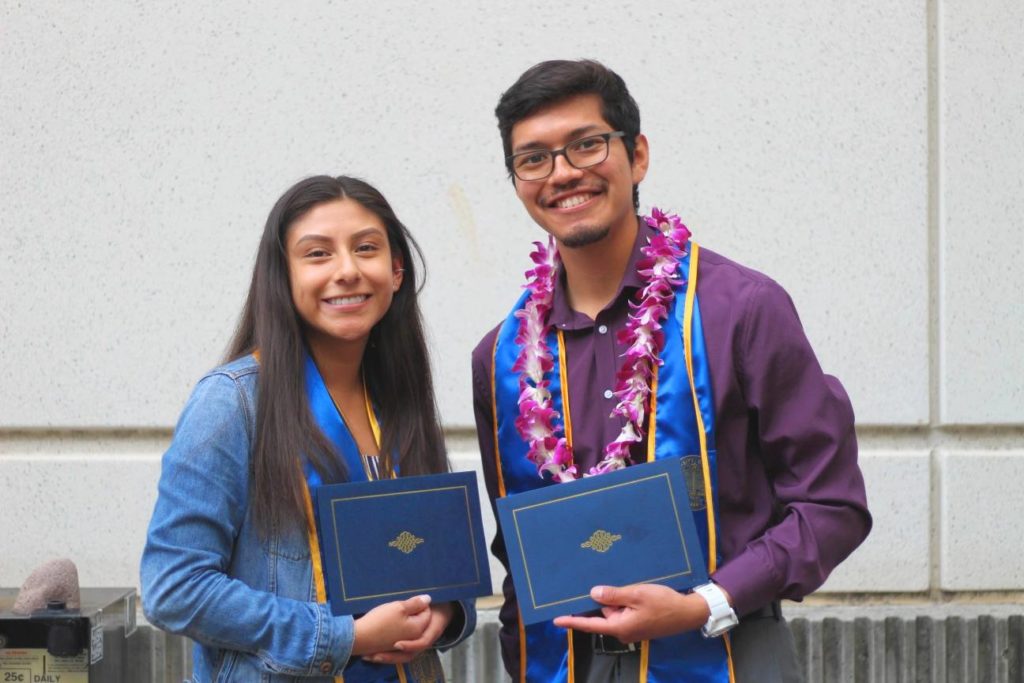October 21, 2019
First-Gen in STEM
Posted by AGU Career Center
The daily hustle and bustle of working in the lab and classroom is often enough to render anyone exhausted by the end of the day. For first-generation students, this lifestyle may just be the tip of the iceberg. Many first-gen students come from families whose daily financial struggles are all too real. On top of this, first-gen students do not have the built-in network to navigate new paths of adulthood that their parents have yet to experience. Moreover, first-gen students in STEM must keep up with the rigorous and competitive nature of their respective fields to get ahead in school so they can bring A’s and B’s back home.
As the first in my family to attend higher ed, I have come to understand that first-gen students can lack the cultural capital to gain a sense of confidence, belonging, and independence that their peers have little to no trouble achieving. A few struggles that first-gen students regularly can encounter include:
- Financial Stability: For first-generation students, the story is often that they come from a family whose socio-economic situations have made it difficult for them to pursue higher education. The students bear much of the financial burden of college by taking out loans that their parents cannot help with. Working part-time jobs is often something that can give some form of stability to the student, but they must take time away from studying geology, engineering, or biology to gain this income.
- Cultural Mismatch: Universities often push narratives that promote independence, self-reliance, and individuality and while these traits seem desirable for many STEM fields, first-gen students often do not come from a background where this type of culture flourishes. These students are familiar with communities of interdependence and collaboration. They are used to finding themselves working for the betterment of their families and community, which, for many first-gen students, is their number one reason for going to college.
- Limited Resources: First-gen students are pioneering a path towards success for their families, and because of this they have little direction on how to thrive at college, especially if they have moved away from their support networks. Feeling lost can in turn lead to a sense of not belonging. In the STEM field if a student doesn’t feel comfortable in their surroundings, they may be less likely to attend critical study groups or supplemental lessons that would help them succeed in their major.
- Family Isolation: Entering a new community that promotes independence and self-discovery can lead to the development of a new identity for the student that conflicts with the identity they grew up with. Families may create a sense of isolation because of this culture clash that to them manifested from college. Students may struggle coping with fitting in with their peers while also assuring their family that they still carry the values they grew up with.
These roadblocks can be constantly running through first-gen STEM students’ minds, but institutions are now taking responsibility by providing tailored research opportunities and resources aimed to remedy these issues. Many professors are also now implementing active learning classrooms where collaboration and interdependence is key to giving first-gen students a sense of community and familiarity when learning.
While first-gen students may face many hardships when attending higher education, the success they achieve in the end can create a sense of pride and joy that is indescribable. Becoming the first in their family to earn an Associate’s, Bachelor’s, or even advanced degree not only grants them authority on field knowledge but also validates that anything is possible for future generations. These first-gen scholars will go on through their careers as living resources for their families and communities, helping them navigate the winding roads of higher education.

Author Omar Rosales-Cortez and colleague Sandra Ramos, both first-generation students, at their UC Santa Cruz Earth Sciences graduation.
Omar Rosales-Cortez, Talent Pool Intern, American Geophysical Union


 On the Job is an AGU blog, that provides career advice and workforce guidance to geoscience students, early-career and established professionals who are interested in pursuing professional enrichment.
On the Job is an AGU blog, that provides career advice and workforce guidance to geoscience students, early-career and established professionals who are interested in pursuing professional enrichment.